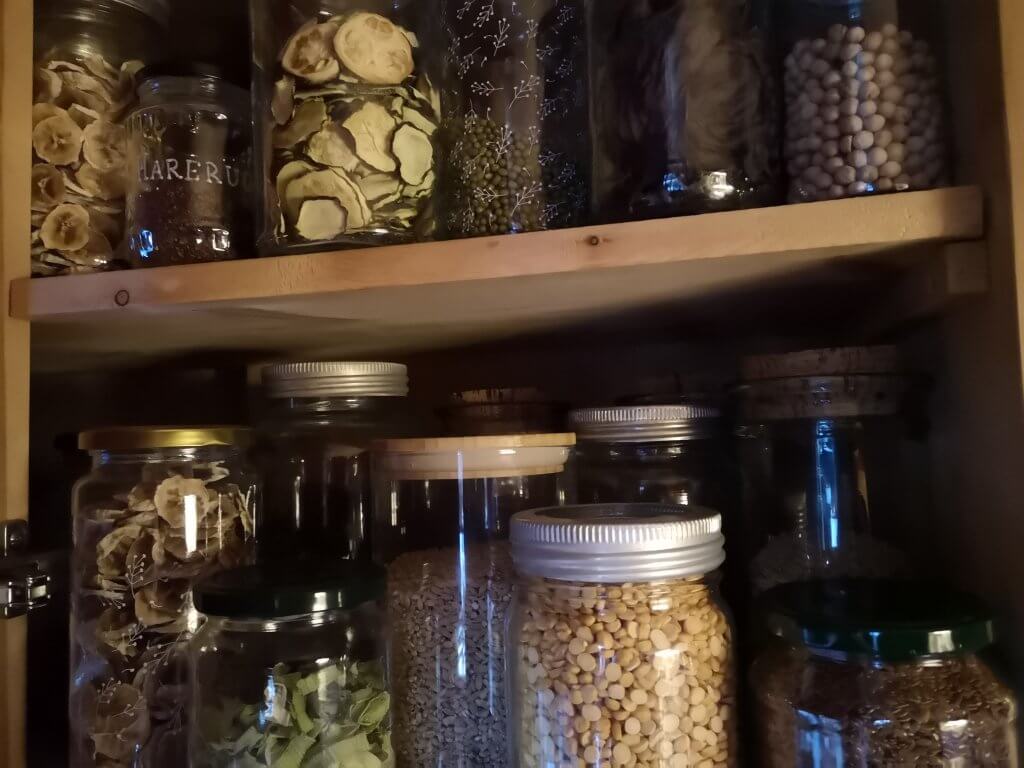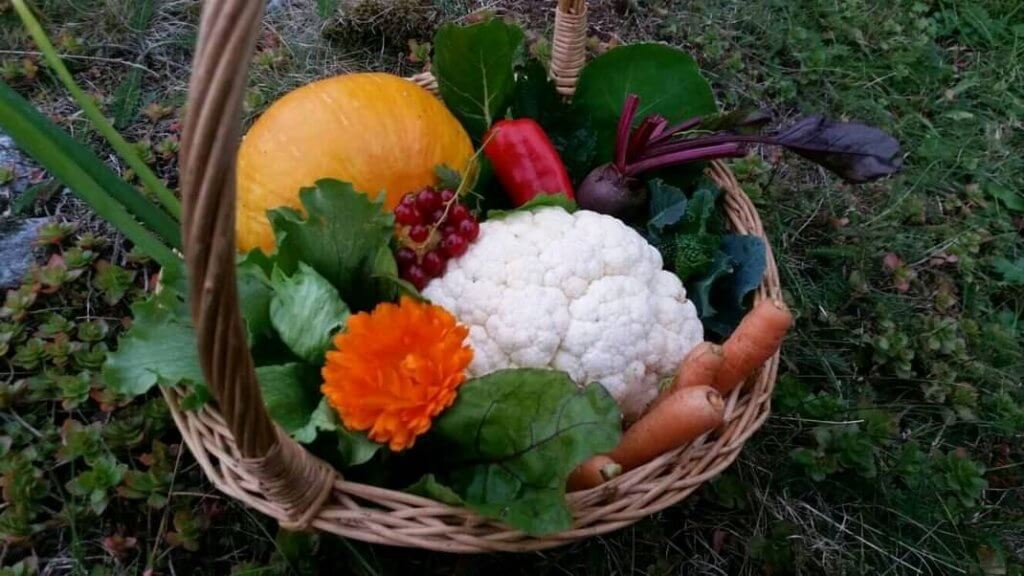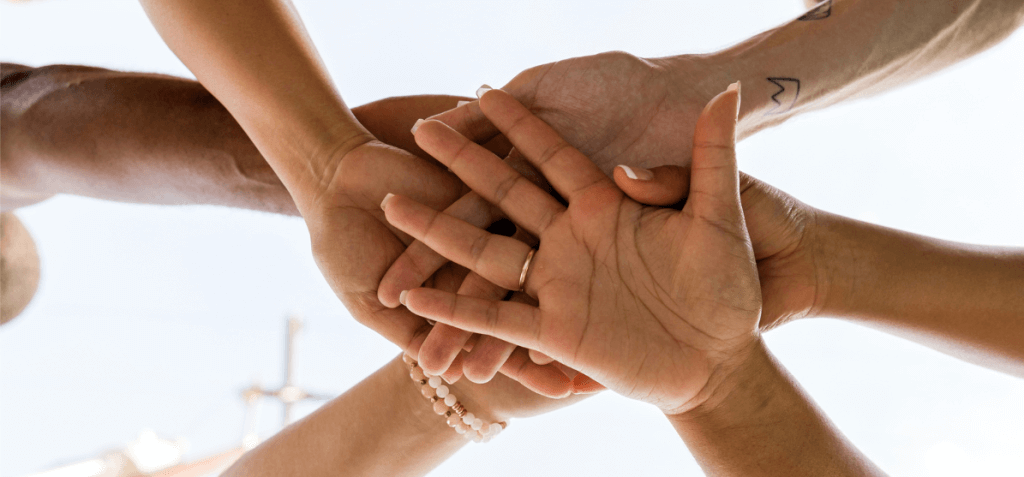preparedness for everyone
Preparedness is a word that is often associated with being prepared for the apocalypse itself and is therefore often seen as something only for weirdos and extreme. I will try to show you why I think preparedness is a very reasonable thing with a wide spectrum that certainly does not have to be extreme. It is up to you to decide what you want to prepare for or to what extent you are willing to get into it.
While I think it is advisable for everyone to follow the government's recommendations to have a three-day emergency stockpile, in my opinion, emergency preparedness does not necessarily mean being prepared for the worst. (you can find the preparedness brochure from dsb here)
For my part, it means e.g. also that I am preparing for a busy summer season with ready-made dishes that you only need to add water to or heat up. be heated. So that I avoid making bad choices because I lack the time and energy to think about and prepare a good meal. In late autumn and winter, however, I have plenty of time to can, pickle and cook in bulk to freeze. It is also nice to have something ready when an unexpected visitor arrives. The nice thing is that I then get a practical solution for everyday life, while at the same time I have a food storage in the event of a crisis.

fear is a bad adviser
Det viktigste for å overleve er kunnskap og mulighet for å skaffe seg mat, rent vann og ly/varme.
Dessverre lærer vi veldig lite av det på skolen. Jeg skal ikke gå inn på hva slag scenarier som kunne føre til at en hver av oss kunne befinne seg i en situasjon da de må forsørge seg selv. Det er ikke meningen å spre frykt og uro - tvert imot.
Jeg tror at den som vet at en kunne skaffe seg livsnødvendige ting, trenger ikke å være redd. For meg fungerer det iallfall slik. Jeg sitter ikke og tenker over mulige farer. Jeg føler meg trygg og rolig fordi at jeg vet at jeg kunne overleve i dager, uker og kanskje årevis uten strøm og butikker hvis jeg ville vært nødt til det. I tillegg har jeg opplevd om og om igjen at å bruke tida og energien min direkte til å skaffe meg mat og andre nødvendigheter, gir meg utrolig mye mer enn å jobbe for penger for så å bytte dem til det jeg trenger.
FOLLOW YOUR INTERESTS
I have not found my interest in gardening through a fear of a food crisis, but through my passion for food. Before, I saw a garden as something boring that only old people cared for. There were always grocery stores, so I didn't see the point in using energy to grow something myself. It was only when I started traveling and have met a lot of nice people who grew their own food and shared it with me along with their knowledge and enthusiasm that I gradually got more and more excited about it. At first only vegetables interested me, then herbs for food and medicine, and now I am fascinated by the entire plant kingdom.
I am convinced that people learn best out of interest or necessity. Fear, on the other hand, blocks and if the necessity arises, it may be too late to learn something. That's why I think it's important to find your own interest in the subject you want to learn. Start with what you already like and don't take on too much at once. Perhaps you feel more about getting food through hunting and fishing? Or maybe you can think a little about which plants and mushrooms you find on your hike that might be edible? Or do you have children and want to show them how carrot seeds turn into food, and in addition be a little extra self-sufficient? Perhaps it is the beauty of flowers that is your key to the plant kingdom and/or you see a garden as an art project? Or are you someone who likes to find practical solutions?
I believe that the vast majority of people can benefit from being more closely connected to nature and their food. But I also think that everyone has their own individual way of doing so. It's nice to get inspiration from others, but if you focus too much on the goal and don't find anything in the process to get there, I think there's a big chance of frustration and giving up along the way.
The following is a list of skills and things that I think are good to have from a preparedness perspective and/or because they are fun and save money. The list consists of both things that I have already learned/acquired and things that are left.

start small
- grow something on the windowsill, on the balcony or in a small bed
- produce sprouts in winter
- buy fruits and vegetables in season and learn how to make them last
- bruk det du har - plantepotter av melkekartonger, yoghurtbegre, dopapirrull m.m.
- make things yourself or buy used (it can be anything from food to cleaning and cosmetics, gifts, toys and whatever else you can think of)
- repair instead of throwing out
- cooperate with people around you
du trenger ikke å være flink på alt - slå deg sammen med folk og bidrar med det du kan - learn to ferment
- sourdough
- sauerkraut
- kombucha
- water- or milk kefir etc.
water
- have a well and/or safe source of drinking water nearby
- knowledge and possibly tools to purify water if necessary
food
from the wild
- knowledge of the identification of edible plants and mushrooms
- hunting and fishing
from the garden
- basic knowledge of cultivation of:
- vegetables
- fruits
- grain
- mushrooms
- composting, mulching and other natural methods of fertilizing and improving the soil
- utensils
- wheel barrow
- spade
- scythe
- digging folk
- SEEDS! and preferably knowledge of proper storage and of saving your own seeds
from livestock
- basic knowledge of animal husbandry for selected animal species
- goats
- sheep
- pigs
- chickens
- beekeeping
- slaughtering and processing of meat
- milking & cheese making
- storing eggs
- hay harvesting including tree hay and other methods of obtaining fodder
PREPARATION & STORAGE
- basic knowledge of cooking and food safety
- methods to make the harvest last
- storage in root cellar
- dehydrating
- salting, curing, smoking
- canning & pickling & juicing
- fermenting
- cheese making
- freezing
- related construction projects (in practice or theory)
- root cellar & improvised storages
- solar dehydrator (without electricity)
- keep mice and other pests away
shelter and warmth

fire (wood)
- types of wood that is most suitable
- logging and storage
- ignition
- efficient firing
- utensils
- saw
- axe
- protective clothes
- matches in a waterproof container
- make fire briquettes or collect birch bark, pine cones, peanut and citrus peel etc.
cloth
- processing and spinning of wool, linen or other materials
- knitting, crocheting etc.
- patching
- take care of good shoes
shelter
- repairs around the house
- tools
- how to set up a simple camp
- insulation with what you have (carpets, curtains, wool/hair, moss, straw, etc.)
OTHER USEFUL SKILLS
- first aid
- kunnskap om plantemedisin - te, tinktur, salve m.m.
- carpentry
- soap making
- brewing & winemaking
- manufacture of salt and sugar
- making candles (not necessarily made from candle wax)
- mill own flour & baking
- how to care for utensils and tools
- basket weaving
- tanning of leather
- forging
NICE TO HAVE
In addition to what the government recommends to have in the emergency storage (the self-preparedness brochure can be found here) og det som jeg har nevnt allerede, synes jeg også dette er kjekt å ha:
- a good knife and tools to sharpen it
- rope
- food containers that are airtight and mouse-proof
- books
- grinder and mortar
- bottles and buckets
community

I think community is an important part of preparedness and life in general. As you can see, the list of useful skills is long and some require years of experience to master. Then it is difficult to manage everything yourself. But both with and without a crisis situation, I think it is best to work together, so that everyone contributes with what they can and have. Young people can e.g. exchange physical capability for knowledge of the elderly. Or I, who raise goats, can perhaps exchange milk and cheese for eggs and fruit? I find that kind of trade to be both much nicer and more rewarding than exchanging money. In addition, it creates a network that relieves the burden on the individuals and provides both practical and moral support.
Even if the day may never come when you really need this network, it is undoubtedly very nice to have. So just ask to learn or exchange if you think someone is good at what they do. If you do not have or feel that you have something to offer in return, then it is of course fine to pay money. This should not be a method to exploit anyone.
Community usually arises automatically in an emergency, but I think it is both reassuring to have one from before, and something pleasant in itself. I think there is simply nothing to lose by betting on community.
A very simple way to get started is by volunteering or giving away surplus of what you have. For small-scale growers, for example, there are often far too many seeds in a seed bag. Then you can ask neighbors or in a Facebook group if someone wants to exchange your surplus for something you don't already have. In addition to the trade, you might also make a pleasant acquaintance with like-minded people.
Not least, all forms of nurturing and caring are also a contribution to community. Looking after children, caring for the sick and the elderly, but also listening and supporting are important components of a healthy relationship. Therefore, I am sure that everyone can contribute something.
beredskap - mer enn mat
Beredskap er bortsett fra alle mulige ferdigheter også å se det større bilde. Har du for eksempel mer dyr enn du har areal til å dyrke fôr til så synes jeg at det er verken særlig bærekraftig eller fornuftig fra et beredskapsperspektiv. Heller ikke hvis du skulle ha en grønnsaksproduksjon som er basert på strøm (som belysning og oppvarming) eller bruk av tunge maskiner. Jeg mener ikke at du ikke kan bruke strøm eller traktor som hjelpemiddel så lenge du har tilgang til det. Jeg mener bare at en driftsmåte som krever mer enn nærområdet kan forsyne med, kan ikke regnes som en del av en beredskapsplan.
La meg forklare det med et eksempel. Hvis jeg har valget foretrekker jeg selvsagt at gårdstunet blir brøytet med en traktor eller snøfreser, istedenfor å måke. Spesielt når det kommer mye og tung snø. Likevel synes jeg at et fjøs eller en hvilken som helst annen plass som er viktig å ha tilgang til, burde ikke ligge for langt unna og sånt at man også kunne måke seg fram hvis maskinene ikke skulle virke. En trenger ikke å gjøre alt for hånd - jeg synes bare det er viktig å kunne gjøre det hvis jeg måtte. Det er det som er beredskap (for meg).
As you can see, the list is long and consists of much more than just food and cultivation. I think that most people will find something on the list that they want to do or know more about. If you want to first read about the topics before you start, or think that books are both nice to have and part of preparedness, you will find a list here with my favorite books in some of the mentioned categories.
I hope, of course, that both you and I will never end up in a situation when we need these skills seriously, but that we rather have fun with them. Should such a situation nevertheless arise, I hope that you are and feel well prepared, and surrounded by people who each contribute in their own way. In the meantime, I wish you the best of luck and lots of fun with your preparedness projects. If you have questions or suggestions about what else should be included in the list, please write a comment.



